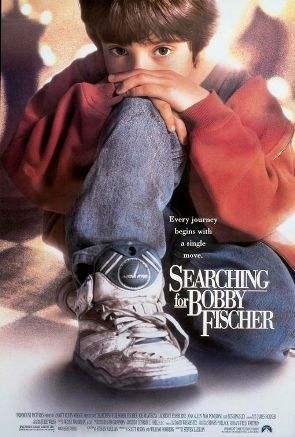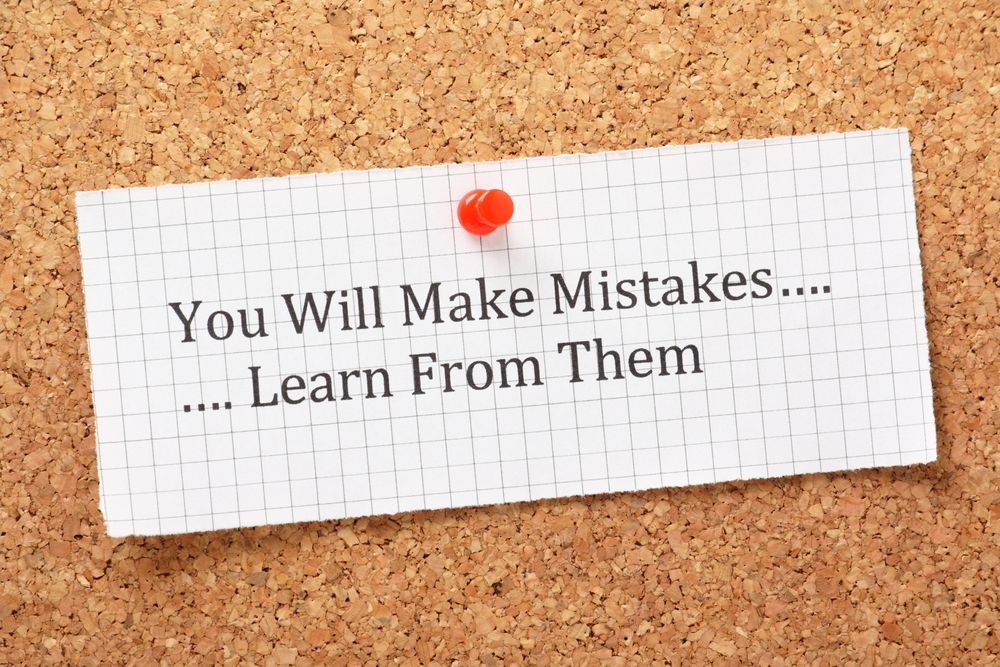
10 Bad Habits In "Searching For Bobby Fischer"
It is time for the big national scholastic tournaments here in the U.S., and that means that we are going to witness thousands of kids making similar mistakes on and off the chess board.
A clear sign of a person getting older is when he starts comparing the time of his youth to today's life. The conclusion is always the same: in the past everything was better, girls were prettier and the food was more delicious.
I guess I am getting old, since I cannot help but notice that in my time young chess players behaved much better. And I am not talking just about future superstars like Anand, Kramnik, Topalov, Ivanchuk, and Gelfand, with whom I played numerous games in junior tournaments. I don't recall any big problems with any of my opponents from all over the world when I played them in the major international competitions.
When I talk to the kids these days, I am surprised that they are not even aware that some of the things they do are plain wrong. For instance, you shouldn't offer your opponent a draw when you have a lonely king vs. pretty much your opponent's whole army (or even keep playing for that matter; see my article here).
It is partially our fault: coaches who don't spent enough time to tell our students the simple rules of a proper chess behavior. But partial blame definitely goes to Hollywood and how it portrays chess players.

Let's take the most famous movie about scholastic chess: "Searching for Bobby Fischer." I think we all should thank this 22-year-old flick for the explosion of the scholastic chess in the U.S.
Unlike the usual image of a nerdy chess player, the movie pictures cute-as-a-button Josh Waitzkin. It makes chess attractive to both parents and kids. Unfortunately, it teaches you a bunch of bad or illegal habits you want to avoid when playing in a chess tournaments.
Watch the most famous episode of the movie and count how many mistakes the young chess players made while playing the decisive game of the tournament.
OK, let's compare our findings.
1) You are supposed to write down your moves in a tournament game (unless it is a rapid or blitz tournament, of course). The game starts around 1:47 into the clip, but throughout the whole game neither player writes his moves. It is simply illegal!
2) You don't need to say check. In fact, in most of the tournaments you are not going to hear opponent's saying check. In the real life, kids think you must say check, just like the kid in the movie (at about 3:30 and 8:39). Once I witnessed a dispute when one of the participants tried to convince everyone that since his opponent didn't say check, he should be penalized for his move!
3) You want to think when you play chess (unless it is a blitz game). Especially in the national championship, and especially in the decisive game. Nevertheless, both opponents blitz out their moves (even in the most important final part of the game). You can see that at about 3:51 the clock shows that Josh Waitzkin spent just about 10 minutes for the major part of the game.
4) You cannot talk to your opponent unless you offer him a draw. Here the opponents talk throughout the game. "Trick or treat" at about 3:58, "what" at 6:45, and then there goes a long conversation between 6:56 and 7:44. Just remember, talking to your opponent during the game is illegal!
5) At 6:51, Waitzkin's opponent says "come on, move!" You cannot rush your opponent to make his move (and of course you cannot talk to him as well!). I personally saw a little boy telling his opponent that he cannot think that much about his move since it is boring! 
6) At 6:56, Waitzkin reaches out his hand almost as if he wanted to touch his opponent. Of course, his opponent didn't even understand what was going on and asked "what's that supposed to mean?" It is not illegal to offer a draw this way, but definitely weird. Hollywood likes to make everything more dramatic, but if you want to offer a draw, just say it!
7) At around 7:20, Josh tries to convince his opponent to take a draw. His motive was noble (he knew his opponent was going to lose), but it doesn't make his action less illegal. You cannot try to convince your opponent to accept your proposal whether it is a draw or loss. You cannot promise him to share the title, any monetary reward or any other favors.
8) At around 9:17, Josh says "good game." Again, he probably had a very noble intention to cheer up his opponent. Just don't do it after you beat your opponent in the decisive game; you just add insult to injury.

Those are basic "dos" and "don'ts" of tournament play. But how you can get better in chess? Again, "Searching for Bobby Fischer" offers some tips:
The funny conversation brings us the next bad idea you can learn from the movie.
9)
-- What's that?
-- Schliemann attack.
-- Where'd you learn that from, a book?
-- My teacher taught me.
-- Forget it. Play like you used to -- from the gut.
Yes, that's really smart! Forget what your coach taught you. Forget about classical openings like the Schliemann attack. Play what your gut is telling you to play, even if it is a 1.e4 a5 opening.
A good friend of mine, NM Alex Betaneli, once told me how one of his students accused Alex of stifling his creativity by "shoving Nimzowitsch down his throat!"
So, follow the advice of the guy from the movie, follow your gut feelings instead of learning from strong chess players, and just like him you'll probably play blitz in Washington Square Park your whole life!
10) Another bit of advice from the same guy: "never play the board, always the man." I can see the followers of this advice on a daily basis. They play cheapos and all kind of silly tricks hoping for the opponent's mistake. Yes, this is how you play in the park, but if you want to become a good chess player, play the board!
In conclusion, let me say that the "Searching for Bobby Fischer" movie is an excellent tool to make a kid (and his parents!) interested in chess, but if you want to become really strong in chess, forget everything you learned from the movie!
RELATED STUDY MATERIAL
- Check out GM Serper's last article: Using The Chess Saw.
- Watch IM Keaton Kiewra's video: Fischer Blunders A Bishop -- Or Did He?
- Play a game between Fischer and Unzicker in the Chess Mentor.
- Practice your tactics with the Tactics Trainer.
- Looking for articles with deeper analysis? Try our magazine: The Master's Bulletin.






